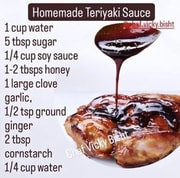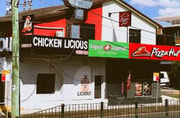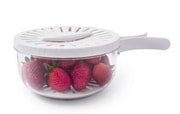Have you been paying more for this summer essential? Here's why!
By
Danielle F.
- Replies 0
For Aussies who love a good day out under the sun, keeping their skin protected remains a top priority.
As the sunny season continues, an important update might make you want to double-check your stash.
Prices of some sunscreen products could rise, thanks to the Australian Tax Office (ATO) updating its Goods and Services Tax (GST) guidelines.
Sunscreen products have had a GST-free status for years as they played a vital role in protecting Australians from the sun's harsh effects.
However, the ATO recently announced that items not predominantly used as sunblock will now be subject to the tax.
This shift could lead to a ten per cent increase in prices.

According to the ATO, this change could affect cosmetic products that contain SPF, such as BB creams and moisturisers.
For products to remain exempt from the GST, they must be marketed primarily for sun protection for the skin.
Additionally, products should have an SPF rating of at least 15 and must be listed on the Australian Register of Therapeutic Goods.
Retailers should adjust the cost of products accordingly for products that do not meet the updated guidelines.
'The ATO is updating its guidance to clarify how we view the current law applying to sunscreen products,' an ATO spokesperson said in a statement.
'Increasingly, modern products are being developed and marketed as having other benefits or uses, such as moisturising and tint.'
Yet, what do these changes mean for the everyday shopper?
Products marketed as 'two-in-one', 'three-in-one', and 'dual action' sunscreens could get hit with the tax.
On the other hand, items marked as 'sunscreen', 'sun protection', 'broad-spectrum protection', 'UVA and UVB protection', 'water and sweat resistant', and 'reef-friendly' will remain exempt from GST.
The Cancer Council has weighed in on the upcoming change.
Cancer Council reminded consumers that cosmetic products containing SPF offer little to no protection from the sun.
'Unless cosmetics are labelled with an SPF50 or SPF50+ rating, you should wear additional sunscreen under your makeup if you're going to be in the sun for an extended period,' the council stated.
'Best practice is to reapply your sunscreen every two hours, not just once in the morning underneath your makeup.'
Are you unsure of how to choose the right sunscreen product for you?
Here's a guide for choosing the best sun protection for you:
Source: TED-Ed/YouTube
The ATO's move prompted a call for beauty suppliers to reassess the scope of their products.
For consumers, it's a reminder to be vigilant about the products we choose, especially the ones we use on our skin.

How do you feel about the upcoming changes to sunscreen products? Will this affect your choice of products? Share your thoughts and any tips you might have for finding the best sun protection deals in the comments below!
As the sunny season continues, an important update might make you want to double-check your stash.
Prices of some sunscreen products could rise, thanks to the Australian Tax Office (ATO) updating its Goods and Services Tax (GST) guidelines.
Sunscreen products have had a GST-free status for years as they played a vital role in protecting Australians from the sun's harsh effects.
However, the ATO recently announced that items not predominantly used as sunblock will now be subject to the tax.
This shift could lead to a ten per cent increase in prices.

Sunscreens protect our skin from the harsh sunlight which could cause skin cancer. Image Credit: Pexels/Kampus Production
According to the ATO, this change could affect cosmetic products that contain SPF, such as BB creams and moisturisers.
For products to remain exempt from the GST, they must be marketed primarily for sun protection for the skin.
Additionally, products should have an SPF rating of at least 15 and must be listed on the Australian Register of Therapeutic Goods.
Retailers should adjust the cost of products accordingly for products that do not meet the updated guidelines.
'The ATO is updating its guidance to clarify how we view the current law applying to sunscreen products,' an ATO spokesperson said in a statement.
'Increasingly, modern products are being developed and marketed as having other benefits or uses, such as moisturising and tint.'
Yet, what do these changes mean for the everyday shopper?
Products marketed as 'two-in-one', 'three-in-one', and 'dual action' sunscreens could get hit with the tax.
On the other hand, items marked as 'sunscreen', 'sun protection', 'broad-spectrum protection', 'UVA and UVB protection', 'water and sweat resistant', and 'reef-friendly' will remain exempt from GST.
The Cancer Council has weighed in on the upcoming change.
Cancer Council reminded consumers that cosmetic products containing SPF offer little to no protection from the sun.
'Unless cosmetics are labelled with an SPF50 or SPF50+ rating, you should wear additional sunscreen under your makeup if you're going to be in the sun for an extended period,' the council stated.
'Best practice is to reapply your sunscreen every two hours, not just once in the morning underneath your makeup.'
Are you unsure of how to choose the right sunscreen product for you?
Here's a guide for choosing the best sun protection for you:
Source: TED-Ed/YouTube
The ATO's move prompted a call for beauty suppliers to reassess the scope of their products.
For consumers, it's a reminder to be vigilant about the products we choose, especially the ones we use on our skin.
Key Takeaways
- The Australian Tax Office (ATO) recently updated its GST guidelines, which could result in a price increase for some sunscreen products.
- Sunscreen products must be promoted predominantly for sun protection, applied to the skin, listed on the Australian Register of Therapeutic Goods, and have an SPF of at least 15 to remain exempt from GST.
- Cosmetic and skincare items like BB creams, moisturisers with SPF, and other products with additional benefits may see a 10 per cent price increase due to the inclusion of GST.
- Cancer Council advised that cosmetic products containing SPF offer insufficient sun protection, and it is best practice to wear sunscreen.







